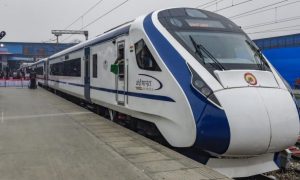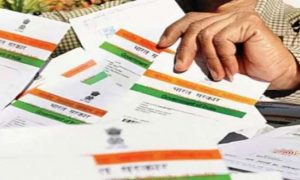The scheme envisages green initiatives like bus priority, infrastructure, multimodal interchange facilities, NCMC-based Automated Fare Collection Systems, and charging infrastructure among others.
The green mobility movement for public transportation has gets a new charge in India. The Cabinet chaired by the Prime Minister Narendra Modi, has approved the ‘PM-eBus Sewa’ initiative for augmenting city bus operation by 10,000 electric buses on PPP (public-private partnership) model.
The scheme would have an estimated cost of Rs 57,613 crore, out of which support of Rs 20,000 crore will be provided by the Central government. The Scheme will support bus operations for 10 years.
The scheme will cover cities of 300,000 and above population as per the census 2011 including all the Capital cities of Union Territories, Northeastern Region and Hill States. Under this scheme, priority will be given to cities having no organised bus service. It is expected to generate 45,000 to 55,000 direct jobs through the deployment of around 10,000 buses in city bus operations.
The Scheme has two segments:
Segment A – Augmenting the City bus services:(169 cities)
The approved bus scheme will augment city bus operations with 10,000 e-buses on Public Private Partnership (PPP) model.
Associated Infrastructure will provide support for the development/ up-gradation of depot infrastructure; and the creation of behind-the-meter power infrastructure (substation, etc.) for e-buses.
Read More: Over 200 Tourists Stranded After Bridge Collapses In Uttarakhand’s Rudraprayag Due To Heavy Rains
Segment B– Green Urban Mobility Initiatives (GUMI): (181 cities)
The scheme envisages green initiatives like bus priority, infrastructure, multimodal interchange facilities, NCMC-based Automated Fare Collection Systems, and charging infrastructure among others.
Support for Operation: Under the scheme, States/Cities shall be responsible for running the bus services and making payments to the bus operators. The central government will support these bus operations by providing subsidies to the extent specified in the proposed scheme.
Promoting green mobility
- The scheme will promote e-mobility and provide full support for behind-the-meter power infrastructure.
- Cities will also be supported for the development of charging infrastructure under Green Urban Mobility Initiatives.
- The support to bus priority infrastructure shall not only accelerate the proliferation of state-of-the-art, energy-efficient electric buses but also foster innovation in the e-mobility sector as well as the development of a resilient supply chain for electric vehicles.
- This scheme shall also bring in economies of scale for the procurement of electric buses through aggregation for e-buses.
- Adoption of electric mobility will reduce noise and air pollution and curb carbon emissions.
- Modal shift due to an increased share of bus-based public transportation will lead to GHG reduction.
Read More: 1 lakh loan at 5% interest: What is PM Vishwakarma Scheme
Nishant Arya, Vice-Chairman & MD, JBM Auto said, “This is a momentous decision that sees e-mobility as a necessity for much of India and especially at a time when the country has committed towards being Net Zero by 2070 and is presiding G-20. This initiative will now really propel green public transportation and will aid the development and expansion of an EV ecosystem across the country. Finally, the momentum gained from this move will catapult India as the EV capital of the world.”
Dr. Aanchal Jain, CEO, PMI Electro Mobility said, “The cabinet approval to the decision on the deployment of 10,000 electric buses will boost localisation in the e-bus domain and expand the much needed ecosystem. The priority given to cities which currently do not have organised buses will enhance the penetration of e-buses in Tier 2, Tier 3 towns of the country, and besides solving the problem of a reliable intra-city public transport system, will make it more sustainable by reducing carbon emissions and consequently improving the air quality.”



































